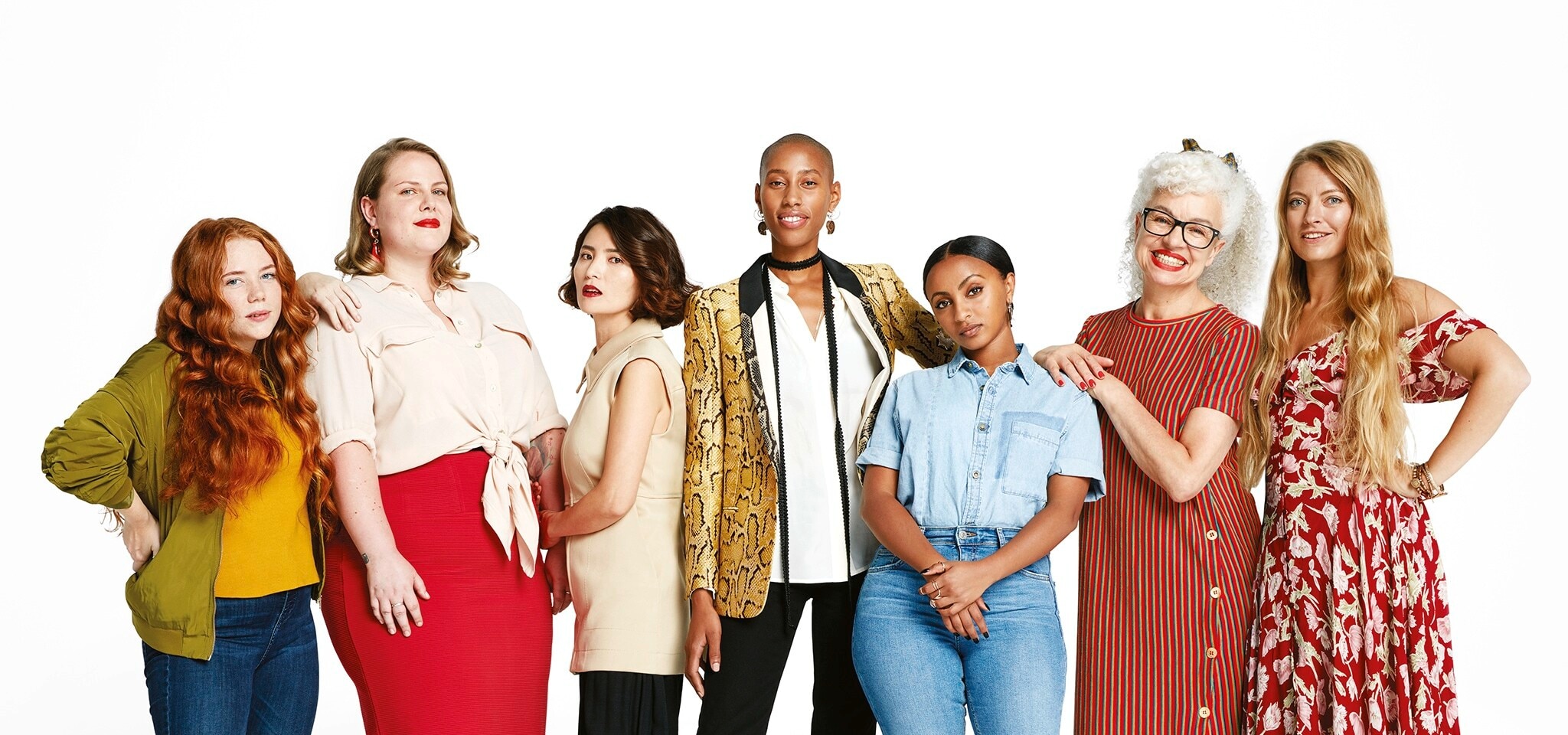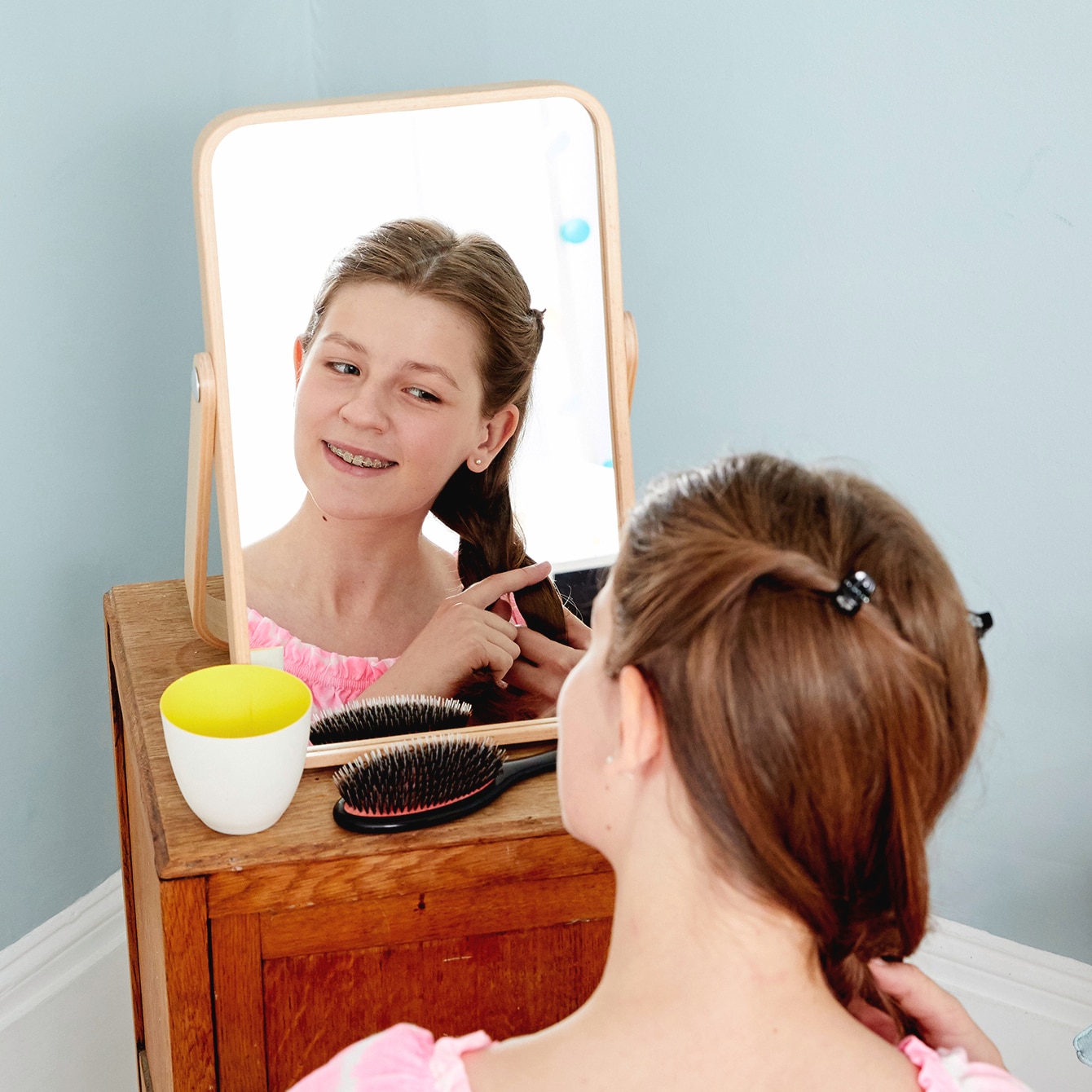Worried about the affect reality TV is having on your child? You aren’t being overprotective – there's increasing evidence that these programmes can have a big impact on young people.
When our children are young, we tend to give careful thought to how much TV they’re watching and whether or not it's good for them. But as they grow up, most parents let their kids make more independent choices about their viewing.
Recognise gender stereotypes in your child's TV viewing
However, if you’ve got children, you may want to stay attentive. Research (PDF) (4.4 MB)🔗 indicates that some reality TV shows can be every bit as damaging for teenage girls as too many cartoons are for toddlers – perhaps even worse.
The truth is that reality TV is anything BUT reality – but that’s not necessarily what our children believe. A study (PDF) (4.4 MB)🔗 for the Girl Scout Research Institute in the US found that eight out of ten girls aged between 11 and 17 who regularly watch reality shows believe these programmes depict real life, are unscripted and spontaneous.
In fact, much of reality TV is a heavily manipulated view of what’s really happening, and the worst of it bolsters the sort of female stereotypes women have spent decades trying to remove.
What are the women in reality TV teaching our children?
Many of the women on reality TV shows are acting out lives as teenage mothers, cheated-on girlfriends or scheming drama queens – the antithesis of the sort of role models we want for our daughters.
Strong, hard-working, purposeful young women with ambitions beyond their looks and sex lives are rare in these programmes. There's an all-pervasive emphasis on the value of women being about how they look and dress, which gives young viewers the message that being a woman is all about style and appearance, not what you do or stand for.
A report from the Parents Television Council in the US (2011) found disturbing evidence of the messages teenage girls in particular are getting from reality shows. Only 24% of what women said about themselves on reality TV was positive, and overall, women were more disparaging than men when talking about themselves or someone else of their own gender.
Males on reality TV programmes tended to refer to females as ‘cool’ when they displayed ‘male-like’ characteristics, such as not viewing sex as an indication of commitment, not seeking romance prior to intercourse and not being jealous when males were sexual with other females.
Normalising the worst stereotypes of women
Cultural critic and writer Jennifer Pozner describes reality TV as “the contemporary backlash against feminism”.
Imran Siddiquee, Director of Social Media and Outreach at Miss Representation🔗, is concerned that these programmes showcase the worst stereotypes of womanhood and ‘normalise’ them in what appear to be everyday settings. “They offer such a limited view of what it is to be a woman, and all over the world young girls are lapping it up,” he says.
Siddiquee does recognise, however, that many girls themselves value reality TV. Some say it prompts them to think about situations and scenarios different from their own. They also point out that some shows feature women running their own successful businesses.
“It’s important to acknowledge that there are some useful elements to reality TV,” Siddiquee says. “But many girls need to be prompted to think more critically about some aspects of these shows so they’re not manipulated by them and so their behaviour doesn’t change because of them.”
Help your child recognise gender stereotypes in media
We should encourage our children to be critical thinkers and help them develop their media literacy. Whether reality TV is changing our children's views, or whether they are attracted to programmes that chime with their beliefs, it's vital we recognise that their viewing habits could reinforce these unbalanced ideals.
Help your child think about these shows differently. Don’t deliver a lecture, but share the facts below and read our action checklist to engage them and tackle the issue.
The facts about how gender stereotypes on reality TV affects young people
- Research (PDF) (4.4 MB)🔗 by the Girl Scout Research Institute shows that girls who regularly watch reality TV tend to be more focused on physical appearance: 72% of regular viewers said they spend a lot of time on their appearance, compared with 42% of non-viewers
- In the same survey, 38% of reality TV viewers said a girl’s value is based on how she looks (compared with 28% of non-viewers). And 28% would rather be recognised for their outer beauty than their inner values (versus 18% of non-viewers)
- Those who regularly watch reality TV were more likely to say ‘you sometimes have to lie to get what you want’ (37% of regular viewers versus 24% of non-viewers); and that ‘you sometimes have to be mean to get what you want’ (28% versus 18%)




